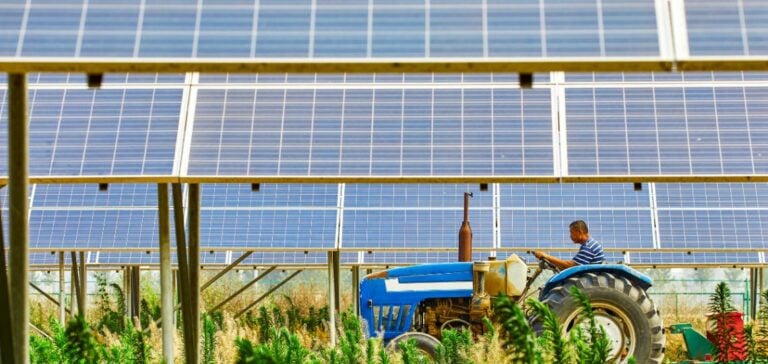The French government will publish a decree “in the next few days” that will enable farmers to install solar panels on their land while preserving their agricultural yields. The decree stipulates that reductions in agricultural yield due to solar installations must not exceed 10%.
Decree details and criteria
According to the text consulted by AFP, the decree will require the average yield per hectare on the plot equipped with solar panels to be “greater than 90% of the average yield” observed on a control plot. This measure aims to protect agricultural efficiency from the potentially harmful impacts of agrivoltaics.
Regulatory and agronomic perspectives
The office of the Minister Delegate to the Minister of Agriculture, Agnès Pannier-Runacher, pointed out, “We wouldn’t want projects to be developed at the expense of agricultural yield, and it’s the Renewable Energy Acceleration Act that provides for this.” The law insists that any agrivoltaic project must significantly support agricultural production, offering benefits such as improved agronomic potential and protection against hazards.
Operating framework and limitations
The decree specifies that the installation of panels must not reduce arable land by more than 10%, and that panels must not cover more than 40% of any agricultural area, except in the case of proven projects. These limits ensure that agricultural production remains a priority.
Agnès Pannier-Runacher asserts that these projects “will enable green electricity to be produced on farms that will continue their agricultural activities in parallel, with food production always remaining the priority.” Roland Lescure added that it’s “better remuneration for the agricultural world, and renewable energy that we absolutely need. We’ll take stock in a year’s time.”






















